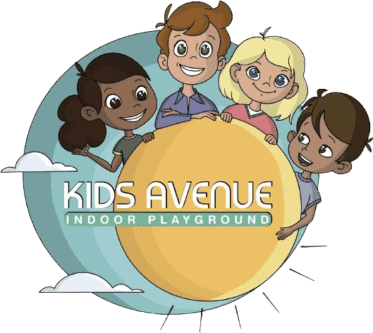When parents think about education, classrooms, books, and teachers often come to mind. But did you know that a playground learning environment can be just as valuable in building essential life and academic skills? Playgrounds offer children more than just a place to burn off energy—they are natural spaces where creativity, problem-solving, communication, and confidence come to life. By incorporating playground learning games, kids can develop both cognitive and social skills that will benefit them in school and beyond.
In this blog, we’ll explore how a playground enhances learning, the role of games in improving memory and focus, and why combining fun with structured activities helps kids grow into well-rounded individuals.
Why Playground Learning Matters
Unlike traditional learning environments, playgrounds allow children to learn through movement, interaction, and exploration. The physical challenges of climbing, sliding, or balancing help kids build coordination and focus, while group play fosters communication and teamwork.
Parents often search for ways to make learning more engaging, and this is where playground learning shines—it combines physical activity with cognitive growth. From developing problem-solving skills through obstacle courses to enhancing memory with playful repetition, playgrounds help create meaningful experiences that stick.
How Playgrounds Develop Cognitive Skills
Encouraging Critical Thinking
When children participate in structured playground learning games, they face challenges that require them to think on their feet. For instance, solving puzzles on play structures or navigating climbing walls can teach them to analyze, plan, and execute.
Boosting Memory and Concentration
Interactive play like memory-based scavenger hunts or pattern-following games strengthens memory retention. Kids become more focused as they try to recall sequences or rules during play, skills that translate into better academic performance.
Enhancing Problem-Solving
Every playground adventure has small challenges—finding the fastest route across equipment, balancing while others are waiting, or working as a team to complete a task. These teach kids how to manage time, resources, and effort.
Social Learning on the Playground
Building Communication Skills
Playgrounds encourage interaction with peers. Whether children are deciding who goes first on the slide or setting rules for a game, they’re practicing negotiation, empathy, and effective communication.
Learning Through Teamwork
Group activities such as tag, relay races, or playground learning games strengthen collaboration. This team spirit is crucial for future group projects, classroom tasks, and even professional life.
Emotional Development
Playgrounds also play a big role in emotional intelligence. Kids learn to manage emotions—whether it’s dealing with frustration, celebrating a win, or comforting a friend who didn’t succeed.
Creative Growth in Playground Learning
One of the most powerful benefits of a playground is its ability to spark imagination. When children role-play games like “pirates on a ship” or “explorers in the jungle,” they’re using creativity to create scenarios, build stories, and solve imaginary challenges.
In fact, at Kids Playground in Northridge, creative spaces are designed to encourage imagination alongside physical play, ensuring kids enjoy both fun and educational value. Similarly, families who choose an Indoor Playground in North Hollywood find opportunities for children to blend storytelling, teamwork, and problem-solving into every visit.
Linking Playgrounds with Academic Success
Studies show that children who engage in active play have improved concentration in class.
Math skills: taught through counting jumps or timing races.
Language development: happens naturally through conversations with peers.
Science skills: explored through cause-and-effect during games.
Parents planning educational outings can also explore unique Birthday Party packages that combine play and structured activities, turning celebrations into learning experiences. Options like the North Hollywood Birthday Package or Northridge Birthday Package add exciting layers of fun while subtly encouraging learning through play.
Playground Learning Games to Try
Here are a few examples of simple yet effective playground learning games:
Scavenger Hunts – Teach children observation, categorization, and problem-solving.
Obstacle Courses – Boost motor skills, strategy, and teamwork.
Memory Trail – Kids follow and remember sequences across play equipment.
Counting Races – Integrate math into fun running challenges.
Story-based Role Play – Encourage creativity, leadership, and storytelling.
By engaging in these games, kids not only stay entertained but also develop a wide range of intellectual and social skills.
Why Parents Love Indoor Playground Learning
Indoor playgrounds like Kids Avenue provide safe, structured environments where children can explore, learn, and grow. Parents looking for fun things to do in a birthday party often discover that indoor spaces make celebrations both enjoyable and educational. By choosing options such as Birthday Party packages, parents ensure that children have the chance to learn while enjoying quality time with friends and family.
Conclusion
Playgrounds are more than just spaces for fun—they are essential for holistic child development. Playground learning and structured playground learning games nurture problem-solving, memory, creativity, communication, and social skills that directly benefit kids in academics and real life.
Whether you’re planning regular playdates or exploring Birthday Party packages like the North Hollywood Birthday Package or Northridge Birthday Package, every visit to an Indoor Playground in North Hollywood or Kids Playground in Northridge offers opportunities for growth.
Give your child the gift of growth and fun! Explore our playground and let learning come alive through play. Book now to plan your visit or host your next event at Kids Avenue Playground.
FAQs
Q1: What is playground learning?
Playground learning is the process of developing cognitive, social, and emotional skills through play-based activities on playgrounds.
Q2: How do playground learning games help children?
They improve memory, problem-solving, communication, and creativity while keeping kids active and engaged.
Q3: Are indoor playgrounds good for learning too?
Yes, indoor playgrounds provide safe and structured environments where kids can play, learn, and socialize in all seasons.
Q4: Can playground learning improve academic skills?
Absolutely. Many playground games reinforce math, language, and science skills in fun, hands-on ways.
Q5: Can I host educational birthday parties at playgrounds?
Yes! Kids Avenue offers Birthday Party packages like the North Hollywood Birthday Package and Northridge Birthday Package, combining fun and learning
